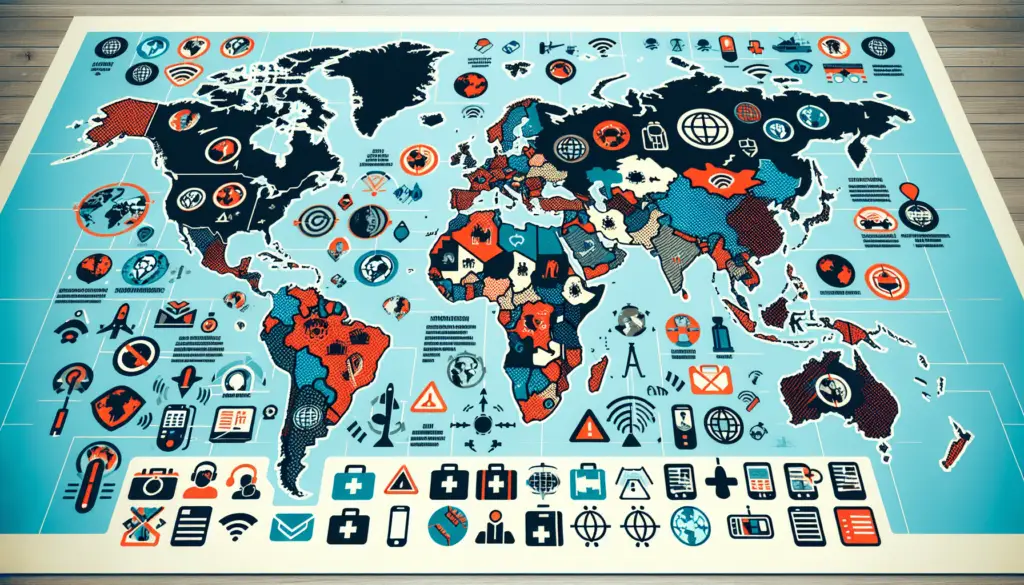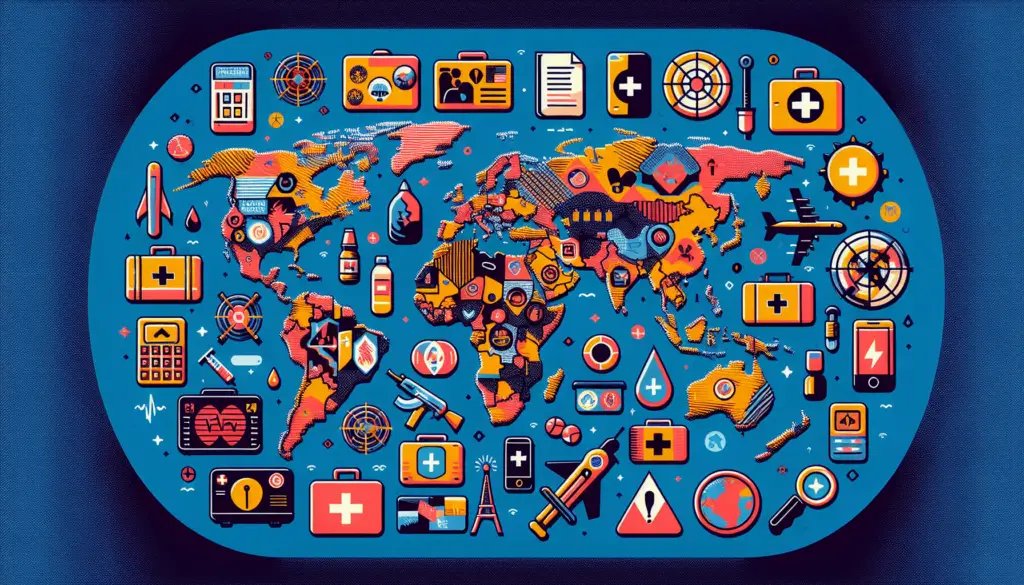Prepping For Global Events: Strategies For International Crises
Have you ever wondered how you would handle a major crisis on a global scale? In today’s interconnected world, being prepared for international disasters and emergencies is crucial. In this article, we will discuss various strategies for prepping for global events and navigating through international crises.

Understanding the Importance of Preparedness
When it comes to international crises, being proactive is key. By taking the time to prepare for potential global events, you are ensuring that you and your loved ones will be better equipped to handle any challenges that may come your way. Understanding the importance of preparedness is the first step towards safeguarding yourself in times of uncertainty.
Assessing Potential Global Risks
Before diving into the specifics of prepping for global events, it is essential to assess the potential risks that may arise on an international scale. From natural disasters to political unrest, there are a wide range of crises that could impact individuals and communities worldwide. By evaluating these risks, you can better tailor your preparedness efforts to address the most probable scenarios.
Creating an International Crisis Plan
One of the most crucial aspects of prepping for global events is creating a comprehensive crisis plan. This plan should outline the steps you will take in the event of an international emergency and include key information such as emergency contact numbers, evacuation routes, and resources for staying informed. By having a detailed crisis plan in place, you can minimize confusion and maximize your ability to respond effectively during times of crisis.
Building a Global Emergency Kit
In addition to having a crisis plan, it is essential to build a global emergency kit that contains all the necessary supplies you may need during an international crisis. Your emergency kit should include items such as non-perishable food, water, first aid supplies, medications, and important documents. By having a well-stocked emergency kit, you can ensure that you have the resources necessary to sustain yourself and your family in the event of a global emergency.
Staying Informed
Staying informed during a global crisis is crucial for making informed decisions and staying safe. In today’s digital age, there are a multitude of resources available for staying up-to-date on international events, including news websites, social media, and emergency alert systems. By staying informed and regularly checking for updates, you can ensure that you are aware of any changes or developments that may impact your safety.
Establishing Communication Plans
Communication is key during a global crisis, especially when loved ones may be separated or in different locations. Establishing communication plans with family members, friends, and colleagues is essential for ensuring that you can stay in touch and coordinate your actions during an international emergency. Consider establishing designated meeting points or communication channels to maintain contact in case traditional communication methods are disrupted.

Seeking International Assistance
In some cases, seeking international assistance may be necessary during a global crisis. Whether it is through contacting embassies, consulates, or international relief organizations, reaching out for help can provide valuable support and resources when facing an international emergency. Make sure to keep a list of relevant contact information for international agencies that may be able to assist you during a crisis.
Collaborating with Local Communities
During a global crisis, collaborating with local communities can be crucial for mutual support and resource sharing. By building relationships with your neighbors, colleagues, and community organizations, you can work together to address common challenges and pool your resources for collective resilience. Consider organizing community preparedness events or joining local emergency response teams to strengthen your connections and support networks.
Participating in International Training and Exercises
To enhance your readiness for global events, consider participating in international training and exercises designed to simulate various crisis scenarios. These drills can help you practice your response protocols, test the effectiveness of your crisis plan, and identify areas for improvement. By actively engaging in training and exercises, you can better prepare yourself for the challenges of an international crisis.
Adapting to Cultural Differences
When prepping for global events, it is essential to acknowledge and adapt to cultural differences that may impact how individuals respond to crises. Different cultures may have varying beliefs, values, and norms regarding emergency preparedness and response, so it is important to be respectful and mindful of these differences. By understanding and adapting to cultural nuances, you can build stronger relationships and better support those around you during times of crisis.
Utilizing Technology for Global Preparedness
Technology can be a powerful tool for enhancing global preparedness and response efforts. From alert systems and communication apps to mapping tools and emergency response platforms, there are numerous technologies available to help individuals navigate international crises. By leveraging technology in your preparedness efforts, you can stay informed, connected, and organized during times of uncertainty.
Practicing Self-Care and Resilience
In the midst of a global crisis, practicing self-care and resilience is essential for maintaining your mental and emotional well-being. Make sure to prioritize self-care activities such as exercise, meditation, and relaxation techniques to reduce stress and anxiety during challenging times. Building resilience through positive coping strategies and maintaining a positive mindset can help you navigate through international crises with strength and perseverance.
Conclusion
Prepping for global events and international crises requires careful planning, preparation, and collaboration. By understanding the importance of preparedness, assessing potential risks, and creating a comprehensive crisis plan, you can better safeguard yourself and your loved ones during times of uncertainty. Remember to build an emergency kit, stay informed, establish communication plans, seek international assistance, and collaborate with local communities to enhance your resilience and readiness for global emergencies. By actively engaging in preparedness efforts and adapting to cultural nuances, you can navigate through international crises with confidence and agility. Stay proactive, stay informed, and stay prepared for whatever challenges may come your way in our interconnected world.
